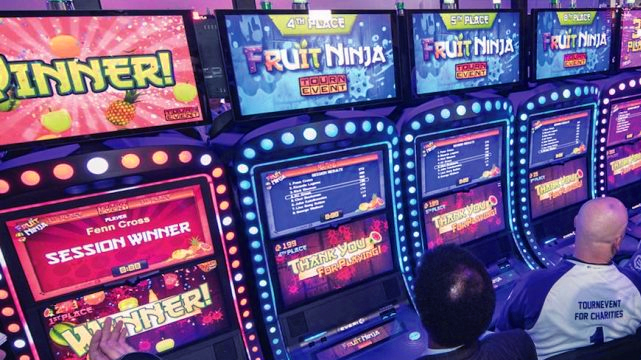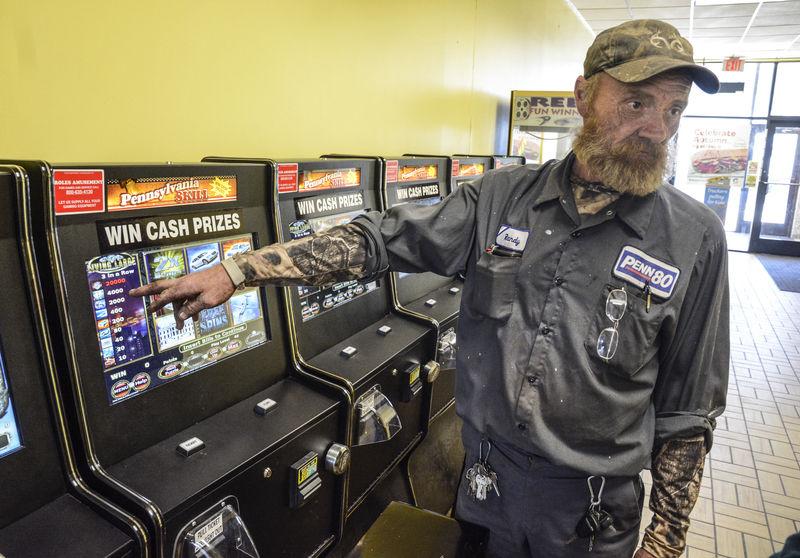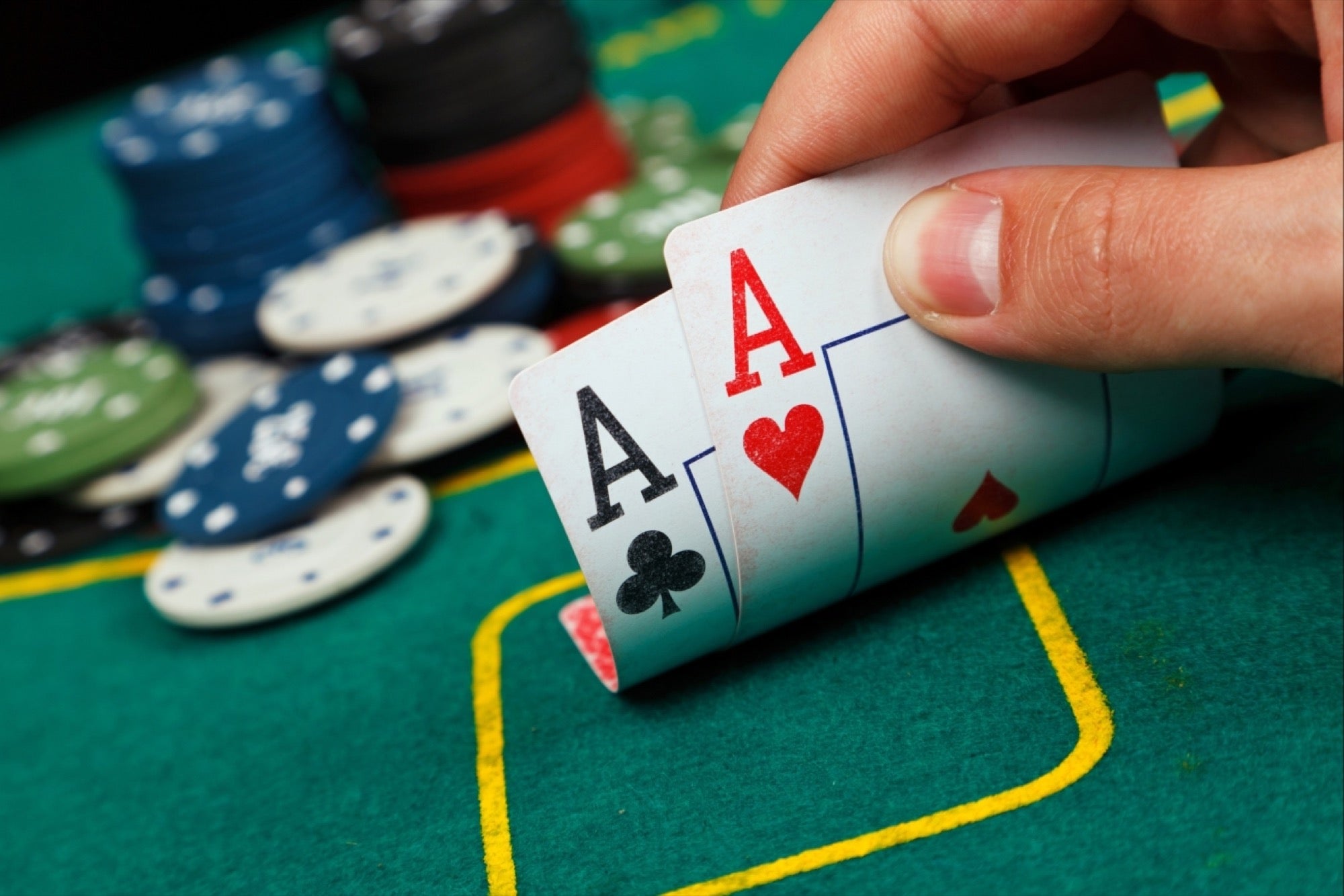Skill Based Gambling Legal

Yes, skill-based slots give players the ability to decide their own gambling luck (in a way), but - skill alone doesn't always translate into success. Skill-based slots give players the ability to decide their own gambling luck (in a way), but - skill alone doesn't always translate into success. The reality is that skill gaming is in the same position it was in before the bill - it is still legal in the majority of US States. The new bill does not change the definition of gambling or the legality of skill games. 'If skill games are not unlawful under applicable state.
Skill-based gaming is nothing new. It debuted in Atlantic City and Las Vegas around five years ago to mixed success.
However, skill slots are currently the hottest thing in Pennsylvania’s gaming market. Numerous people are playing these slots at bars, convenience stores, restaurants, and other types of businesses.
A PA skill game works a little differently from a regular slot machine. Assuming you’d like to know more about these games, you can learn about them below.
How Does a Pennsylvania Skill Slot Machine Work?
A Pennsylvania skill game looks and plays very similar to a regular slot machine. You begin playing these games by inserting your money into the terminal.
Next, you spin the reels and hope to line up matching symbols in paylines. Most of these games show how much each winning combinations pays through a pay table on the side.
Again, you can see that these games aren’t much different from standard slots. But each can differ from the next regarding the skill element.
Here are various examples on how these slots incorporate skill:
- A pre-reveal mechanism that allows you to see if you’ll win or lose the next spin.
- You must touch wild and/or scatter symbols to activate them.
- Skill-based bonus rounds.
Starting with the first option, pre-reveal slot machines first gained infamy in Florida. They give you an option, or force you, to see if the upcoming round will be a winner or loser.
Knowing the result of the spin enables you to determine whether it’s worth playing. Normally, though, you can only see the result of a single spin.
The second feature, where you touch certain symbols to activate them, doesn’t really bring much skill into the fold. It simply introduces a manual element to the game.
Finally, skill-based bonus rounds can see you do all sorts of things. One example is a memory game, where the slot shows you a series of flashing dots.
At first, you’ll have an easier time remember which dots flash. But these games get tougher and tougher as more dots flash and really test your memory skills.
Legal Gambling Age
How Do Skill Games Differ From Regular Slot Machines?
A skill slot machine looks and plays much like standard real money slots. You probably wouldn’t be able to tell the difference between the two under most circumstances.

However, PA skill games feature more action than just spinning the reels. As described before, they see you doing everything from tapping symbols to playing fun bonuses.
Pace-O-Matic, one of the biggest manufacturers of such terminals, designs these games in a specific manner so as to avoid the normal gambling distinction.
After all, convenience stores, laundry mats, and bars can’t just offer a regular slot machine without a license. But they can feature a skill-based terminal without breaking laws—at least for now anyways.
These machines also give you more influence over the results. You might not be able to use your abilities to control 100% of the outcomes. However, you may have the ability to control approximately 3% of the action through skill.
The companies that develop PA skill slots aren’t required to divulge return to player (RTP). Their operators don’t need to offer this information either.
This aspect heavily differs from the regulated Pennsylvania gambling market. Land-based casinos must work with gaming regulators and offer RTP figures.
In What Ways Are Skill and Regular Slots the Same?
These games may offer the promise of skill-based gaming. In the end, though, they aren’t much different than standard slot machines.
Both use random number generators to determine the bulk of the results. Your odds of winning heavily rely on the luck associated with each spin.
For example, a PA skill slot might feature 90% RTP on the spins alone. But it would give you the ability to influence another 5% of the RTP through a bonus round.
With expert play, you could bump the payback up to 95%. Of course, this figure doesn’t differ much from casino slots, which typically offer between 90% and 95% payback.
Another similarity is the fact that the house wins in both cases. Some players mistakenly believe that they can win guaranteed profits if they play a skill-based game just right.
The truth, though, is that they don’t have any better chance of winning at a convenience store than they do a casino. The skill aspect is mostly an illusion that’s designed to float Pennsylvania gambling laws.
Of course, you can always get lucky with a skill-based or regular slot machine and win the jackpot. You’ll be relying on luck to win in both cases, though.
Skill Slots Are Quite Controversial
PAIG also takes exception to the fact that these games aren’t regulated. The Pennsylvania Gaming Control Board doesn’t have any jurisdiction over the makers or operators of skill terminals.
Furthermore, the bars, convenience stores, and restaurants that offer these machines don’t pay additional taxes. They only cover standard income taxes on profits.
Contrast this situation to the state’s 12 land-based casinos. Each must pay a licensing fee to operate along with a 54% tax rate on revenue.
This 54% rate makes Pennsylvania one of the toughest markets for earning casino gaming profits. Meanwhile, skill-based operators gain a competitive advantage by paying far less in taxes.
Will Pennsylvania Ban These Slot Machines?
PAIG has made some headway in bringing light to the hypocrisy surrounding skill-based gaming. The group is drawing more attention to their mission of getting these games shut down.
Police in certain Pennsylvania jurisdictions have seized these terminals during crackdowns on illegal gambling. Pace-O-Matic responded with a lawsuit against the Bureau of Liquor Control and Enforcement.
As of now, the two sides are embroiled in a murky legal battle where nobody has tasted victory yet. In January 2020, a Commonwealth Court judge ruled that Pennsylvania State Police can seize skill-based games while the matter is being decided in court.
This ruling doesn’t mean that authorities will seize relevant terminals all over the Keystone State. Instead, it just lifts a ban on the practice of doing so as law enforcement sees fit.
State police argue that the skill-based machines are only a small part of their crackdown on illegal gambling. They’ve only seized a few dozen of the 20,000 skill games operating throughout the state.
For this reason, the Commonwealth Judge saw no reason to ban such seizures. Of course, the games will be given back if Pace-O-Matic wins its case.

Neither side has presented a compelling argument on why these terminals should or shouldn’t be legal. But Florida might provide a preview on what will happen with this case.

The Sunshine State had a problem with pre-reveal slot machines running rampant throughout its borders. The Seminole Tribe, which holds a gambling pact with Florida, argued that pre-reveal games violated its agreement with the state.
After careful consideration, a judge decided to ban these machines. They ruled that pre-reveal slots fall under the definition of illegal gambling.
Pennsylvania doesn’t have a tribal gaming pact with any Native American tribes. However, it does have a licensed gambling market with 12 casinos.
The state may ultimately rule against Pace-O-Matic to preserve its good relationship with the licensed gambling establishments.
Conclusion
A PA skill slot differs slightly from casino terminals by including some element of skill. “Some” is the key word here, though, because these games don’t give you a true chance to overcome the house edge.
You might be able to influence 5% of the RTP through your abilities. But if the base RTP is 91%, you can only achieve up to 96% RTP.
Skill-based slots remain a mixed bag. They include different elements than a standard slot, but they’re also somewhat deceiving in how much control they give you over results.
PAIG is currently fighting against these terminals and believe that they constitute illegal gaming. The jury is out, though, on if these games will ultimately be outlawed.
Skill-based gaming has become a hot topic in the gaming community. In the first part of this two-part series, we will identify the business problems that skill-based games hope to address and take a look at what actually constitutes a “skill-based game.” In the second part of this series, we will take a look at the various legal issues that policy makers, legislators, and regulators must consider when implementing skill-based gaming in their jurisdictions.
As elderly casino patrons continue to age, and particularly as the baby boomers reach retirement age and beyond, the need to attract new casino patrons to replace lost patrons becomes more urgent. Casinos are being forced to target millennials to replace the loss of other patrons. However, millennials have grown up in an age where video gaming has become increasingly popular, interactive, and sophisticated. With the introduction of smart phones in the last decade, and the vast variety of games that can now be played with a phone, the need for constant interaction has increased even more. As a result, traditional slot machines that use purely random number generation no longer provide the level of interaction that is required to attract new patrons to casinos. Enter skill-based gaming.
To clarify, skill-based gaming is not expected to be a complete remedy or solution for the problem. Casino operators do not currently consider skill-based games to be a replacement for existing games. To the contrary, these new games are only intended to be an additional attraction to get new patrons on the casino floor. At this time, most operators only envision using between five and ten percent of the casino floor for skill-based gaming.
Skill Based Gambling Legal Advice
So what is a skill-based game? A very simple definition would be a game where the outcome is primarily determined by physical or mental skill instead of purely by chance. Historically, we have seen skill-based games (albeit unregulated) in the context of carnival or county fair type games where each patron pays for a chance to play a game and win a prize. At present, one could argue that skill-based games currently exist in most casinos in the form of video poker and poker rooms. Skill-based games can be pure skill games where no element of chance is involved (think a free-throw shooting contest). Alternatively, skill-based games can be a hybrid in which elements of both skill and chance are present. At this time, it appears that most skill-based games are expected to be of the hybrid variety. For these hybrid games, manufacturers and operators must consider two key factors – where does the element of skill come into play and how is the wagering component incorporated.
Some skill-based games are very similar to traditional slot machines that use random number generation. Patrons will still wager and play the game in the same manner as traditional slot machines. The difference, though, is that these devices will incorporate a bonus round concept in which the amount of the bonus the patron receives is based on a skill-based element (e.g., a bonus round where the patron plays Space Invaders or another video game with the amount of the bonus being predicated on performance). Other skill-based games use a tournament style format. Players will buy-in to the tournament, and the winnings for each patron will be determined based upon the place that the patron finishes in the tournament (e.g., free-throw shooting contests, traditional poker tournaments, etc.). In a similar vein, other skill-based games will require multiple patrons to wager and play against each other. The winner of the game will then receive the money wagered by all of the players less a house rake (e.g., Words with Friends and grab poker- a game where cards fly across a screen and multiple players “grab” the cards to make the best possible poker hand). Regardless of which form they take, all skill-based games have one thing in common- at some point, an element of skill plays a role in the outcome.